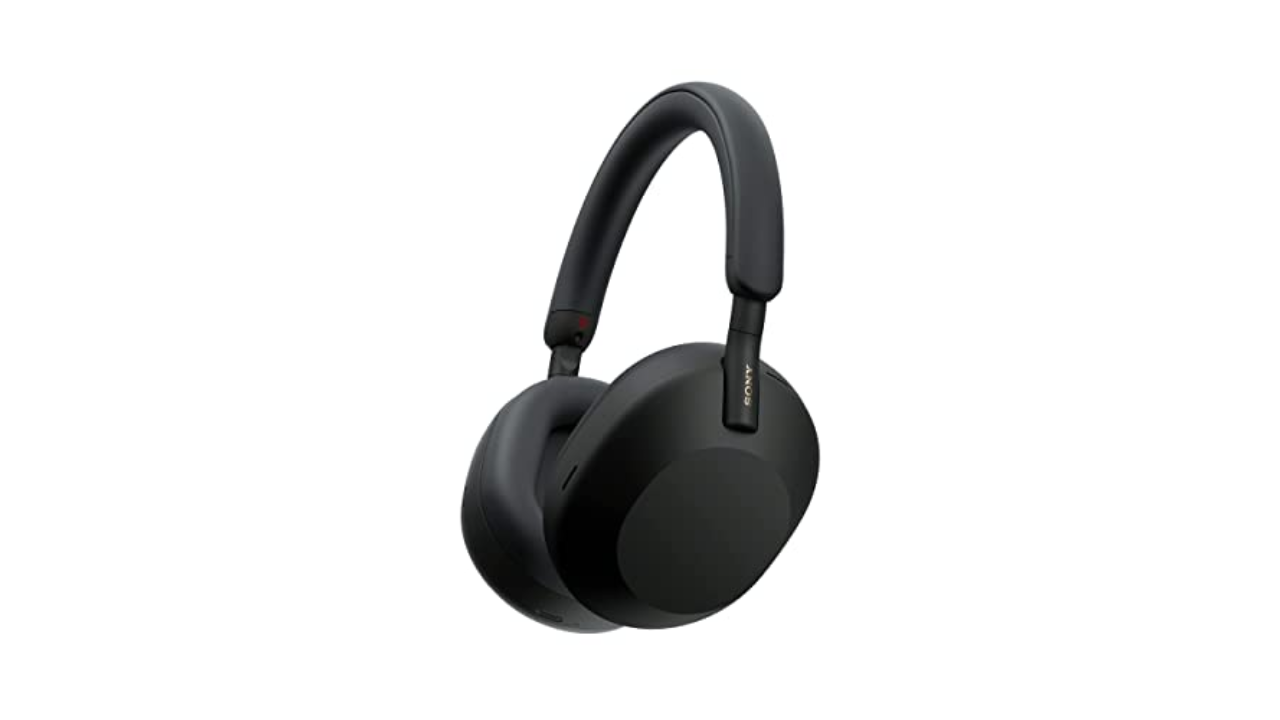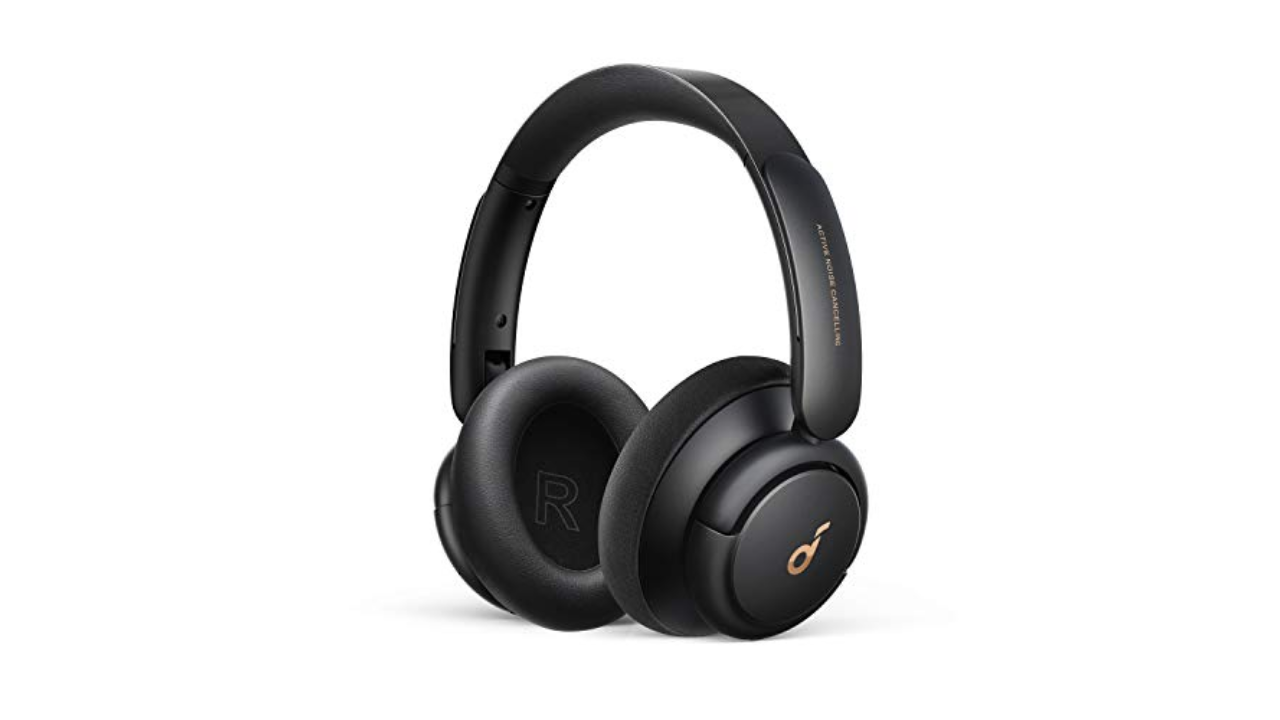We may earn commission from links on this page, but we only recommend products we believe in. Pricing and availability are subject to change.
The best wireless headphones for seniors in 2024
Hey, you with the ears: If you like listening to music, movies, podcasts and the like, and you want to do it in peace, you've got two options: headphones and earbuds. I'm here to make the case for the former — and also to share my picks for the best wireless headphones you can buy right now.
Sony WH-1000XM5 Noise-Cancelling Headphones
Best headphones overall
Soundcore Q30 Hybrid Active Noise-Cancelling Headphones
Best budget headphones
Zvox AV52 Noise-Cancelling Headphones
Best headphones for TV watchers
1More SonoFlow Active Noise-Cancelling Headphones
Best long-battery-life headphones
Sony WH-CH720N Noise-Cancelling Wireless Headphones
Best Sony XM5 headphones alternative
Why cover your ears with cushy cups instead of wrangling little earbuds into them? I think that question answers itself. Not everyone likes the feel of Apple AirPods and similar products, which require a tight seal inside your auditory canals. Headphones sit comfortably atop your head and over your ears. They also offer vastly superior battery life and, in most cases, better active noise-cancelling (ANC).
Earbuds are easily lost, too, but just try misplacing a full-size headphone.
Below I've rounded up the best headphones for different kinds of users: audiophiles, budget shoppers, TV watchers and so on. These picks are based not only on testing (comfort, sound quality, battery life, etc.), but also my 30-plus years of reviewing consumer electronics.
While we're on the subject of sound, you should also check our roundup of the best soundbars for your TV. And seniors on your holiday shopping list might enjoy a home smart speaker, and we’ve got you covered there as well: How to choose the best smart home speakers for seniors.
Best headphones for seniors overall
Active noise-cancelling: Yes | Battery life: Up to 30 hours | Features: Speak to chat, touch controls, wear detection
If you have ears, you're sure to love the Sony WH-1000XM4. It's a splurge, but worth it for anyone who prizes a premium audio experience. This headphone is very comfortable, with amazing sound and virtually unrivaled ANC. You can get them in black, blue or silver, each with some pretty advanced features baked in. Speak-to-chat, for example, helps with conversations: If you start talking to someone, the music cuts out while the microphones cut in. Touch controls make it simple to adjust volume, skip tracks, access your voice assistant and so on. And Sony promises up to 30 hours of listening on a charge — only about average, but still a good long time.
- Premium sound
- Superb noise-cancelling that automatically adapts to your environment
- Wear detection
- Lots of useful tools in Sony's companion app
- Expensive
- Non-folding design
- Bass-heavy sound profile
Other top headphones for seniors we recommend for 2024
Active noise-cancelling: Yes | Battery life: Up to 40 hours | Features: Protein leather ear cups, adjustable ANC for different settings
If you're wondering whether an $80 product can possibly rival one costing three or four times as much, get ready for a surprise: It can. Soundcore's Q30 offers sweet sound and robust noise-cancelling. On those merits alone, I'd have no qualms about recommending it. But you also get above-average battery life — up to 40 hours with ANC — and a cool app with equalizer presets, white-noise sounds and more. All this for around $80 — and if you time it right, you're likely to get the Q30 for even less, as it goes on sale often.
- Impressive battery life
- Well-balanced sound
- Good ANC
- Low price
- No wear detection
- ANC doesn't work with wired connections
Active noise-cancelling: Yes | Battery life: 24 hours+ | Features: Dialogue enhancement, carrying case
It may look like an ordinary noise-canceling headset, but the Zvox AV52 has an extra trick up its sleeve: dialogue enhancement. That's great for anyone with some hearing loss. At the same time, onboard ANC will help reduce the noise made by your exercise machine, neighbor's lawn mower and the like. The AV52 over-ear headphones fold up for transport inside an included case and comes in a nice array of colors: black, blue, white or rose gold. These aren't the best noise-cancellers in the group, not by a longshot, but they can definitely help those with hearing challenges better enjoy video.
- AccuVoice tech boosts dialogue
- Low price
- So-so noise-cancelling
- Battery life a bit below average
Active noise-cancelling: Yes | Battery life: Up to 70 hours | Features: Foldable with a carrying case, 12 EQ presets available
Able to play up to a whopping 70 hours on a charge (or nearly-as-whopping 50 with ANC turned on), the SonoFlow is an amazingly good headphone for the price. It looks nice, sounds great and is foldable up to make travel easier. To that end, 1More supplies a carrying case. I think this is a close rival to Sony's CH-720N headphone, which costs $50 more and doesn't fold. But novice users should take note: The included instructions aren't great, and there's limited extra help to be found online.
- Very good sound
- Exceptional battery life
- Folding design
- Travel-friendly carrying case
- Affordable price
- Incomplete printed instructions
- ANC doesn't work with wired connections
- No wear detection
Active noise-cancelling: Yes | Battery life: Up to 30 hours | Features: Tactile buttons rather than touch control, multipoint connectivity
Want the noise-cancelling acumen and auditory bliss of Sony's XM5 headphones (above) without the sky-high price? You can have it: Sony's WH-CH720N offer the same core tech for less than half the cost. So what exactly do you sacrifice by choosing the cheaper product? Wear-detection and folding earcups, but that's about it. These are light, comfortable headphones, with tactile buttons instead of touch controls (something I actually prefer). So if your budget won't stretch as far as XM5 territory, this is the next best thing.
- Lightweight and comfortable
- Superb sound and noise-cancelling
- Much less expensive than Sony's flagship 'phones
- Multipoint connectivity
- Tactile control buttons
- Poor printed instructions
- Non-folding design
- No carrying case
- No wear-detection
Factors to consider when choosing headphones for seniors
With dozens of different headphone models to choose from, how did I decide which ones qualify as the "best"? I took a few things into account.
Audio quality: Audio is a highly subjective thing; what sounds great to one set of ears might sound less so to another. For example, if you're not a fan of heavy bass, you might dislike 'phones designed to boost that thump. And if you're older, maybe you care more about dialogue enhancement (for movies and TV shows) than anything else. Every headphone here sounds, to my ears, great. Hardcore audiophiles may be able to detect the subtler details from one pair to another, but I think most users will be happy with just about any of these picks.
Fit and comfort: Although most headphones have the same basic design — padded headband and foam earcups — the fit can be different. A tight headband or mushy, non-pivoting earcups can make for an uncomfortable experience. I left those models out of the lineup.
Price: Everyone has a different budget, so I tried to include something Indeed, different people have different ears, heads, needs and preferences. Budgets, too. Therefore, my picks are based on a combination of personal experience (I tested all five of the products listed below), product reputation, professional reviews, user ratings and, finally, price. Every product I've selected deserves its "best" designation for one reason or another.
Active Noise Canceling (ANC): The hot headphone feature of the 21st century is active noise canceling, otherwise known as ANC. Flip a switch (or press a button) and the earpieces magically reduce a certain range of ambient sounds: jet engines, for example, or backyard lawnmowers. The result is that you can fly, work or exercise in relative peace. Some headphones perform this trick better than others, but the good news is it's now a staple feature: Even the most affordable ones have it. Take note, however, that activating ANC will cost you a bit of battery life and possibly some audio fidelity as well. But it's optional, so you can always turn it off if it's unnecessary or if you don't like it.
Battery life: As noted earlier, most wireless headphones blow the doors off earbuds when it comes to battery life. At a minimum, you're likely to get around 20 hours on a charge — but some 'phones can run 30, 40 or even 50 hours, and that's with ANC enabled. (Batteries last even longer if you toggle that feature off.)
Headphones for seniors FAQs
What are the disadvantages of noise-cancelling headphones?
One downside of noise-cancelling headphones is they can completely block out potentially important noise. For people who are hearing impaired or hard of hearing, noise-cancellation can make it more difficult to hear anything other than what's coming out of your headphones. In an emergency, you will have reduced awareness if you can't hear what's going on around you.
How do I prevent hearing damage when using headphones?
Hearing damage can be prevented in multiple ways. While using noise-cancellation can help, simply lowering your headphone volume is a great way to prevent hearing damage. Make sure you're taking breaks from using your headphones, too. It can also be better to use on-ear headphones that have surround sound modes rather than in-ear buds — you'll be able to keep the noise lower and have a better listening experience than with buds that go directly into your ears.
Do you need Wi-Fi for wireless headphones?
No, you don't need Wi-Fi to use wireless headphones because most of these devices connect through Bluetooth and will automatically reconnect to your wireless device when both are turned on. Bluetooth headphones are easy to set up and require just one calibration; you typically just do so in your phone's settings. These headphones are also rechargeable.




